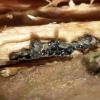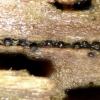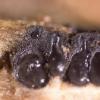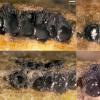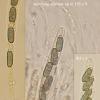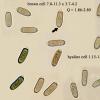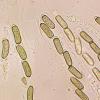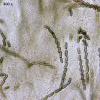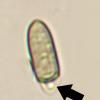
13-02-2026 03:30
Hello! I found these immersed perithecia on a stic

12-02-2026 21:34
patrice CallardBonjour, la face inférieure des feuilles ce certa

11-02-2026 22:15
 William Slosse
William Slosse
Today, February 11, 2026, we found the following R

12-02-2026 14:55
Thomas Læssøehttps://svampe.databasen.org/observations/10581810

11-02-2026 19:28
 Lothar Krieglsteiner
Lothar Krieglsteiner
on small deciduous twig on the ground in forest wi

25-04-2025 17:24
Stefan BlaserHi everybody, This collection was collected by J�

10-02-2026 17:42
 Bernard CLESSE
Bernard CLESSE
Bonjour à toutes et tous,Pourriez-vous me donner

10-02-2026 18:54
Erik Van DijkDoes anyone has an idea what fungus species this m

09-02-2026 20:10
 Lothar Krieglsteiner
Lothar Krieglsteiner
The first 6 tables show surely one species with 2
Hi to all
My friend F.J. Balda sent me this fungus growing on very wet, semirotten, wood of Pinus sylvestris that makes groups of inmersed and blackish perithecia 0.5-0.6 mm high inside + or - developped blackish stromata. Only the blackish and roundish papilla erumpent.
Asci long-stipitate up to 155 x 9 micr., with a refractive, small, IKI negative apical apparatus. The greenish-brown mature ascospores have a non-septate dark cell with an apical pore and an small hyaline cell under the wich we can to observe a very small hyaline papilla (?).
If this fungus belongs to Endoxyla only E. xanthostroma is close, but the lack of yellowish tissues and the hyaline papilla of the ascospores don't fit with this species.
Any idea?
Thanks again
Hi Enrique,
E. xanthostroma is a good option, you said it. On the fourth photo, we can see yellow tissues, do you agree ?
The other features fit almost well with E. xanthostroma.
Alain

in fact she does mention the "cellula hyalina" (p. 305 and figs. 21-22).
Regards
Martin
Hi Martin
The hyaline cell was described, and it was drawn by Untereiner, but not the small hyaline appendage under this cell!
